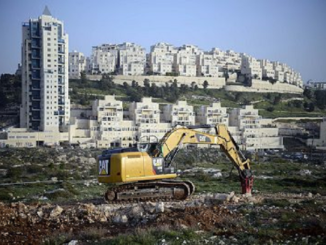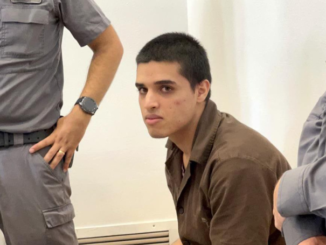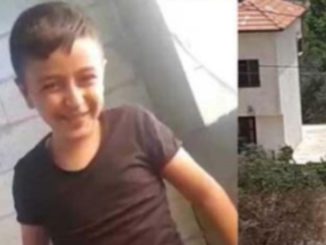
In an interview with Palestine Deep Dive (PDD), distinguished Palestinian journalist and author, Dr. Ramzy Baroud discusses the killing of the iconic Al Jazeera journalist, Shireen Abu Akleh.
Baroud, who is also a former Al Jazeera employee (serving as Deputy Managing Editor of Al Jazeera online), pays homage to his friend and colleague while addressing key questions surrounding the death of the veteran Palestinian reporter, such as: Can this be considered an assassination by Israel? Have other Palestinian journalists been targeted the same way over the years? And is there a possibility of achieving justice given Abu Akleh’s dual status as an American citizen?
Paying homage to Abu Akheh, Baroud begins:
“One thing that I appreciated so much about her, aside from her humble demeanor and just kindness, she was a very kind and gentle person, is the type of journalism that she did. In Palestine, it is what we call community journalism. She wasn’t this foreign journalist chasing after scoops and such. She tried to engage ordinary people into her reporting. She spoke to old ladies in the streets. She would sit with people in coffee shops and talk to them. She spoke to children, she spoke to human rights activists and she talked to civil society organizers… She was always there at the frontline, and she was extremely courageous in the way she did this.”
Elaborating on whether he thinks Abu Akleh was targeted, Baroud states:
“Shireen was very well known to Israeli soldiers in that area. She’s been working there for over 20 years. They must have known who she was when they actually opened fire and killed her. In fact, many people are using the term assassination. I would use the same term as well because the nature of her death was, this is not just a random fire when you get shot in the head as a journalist while you are fully wearing your press vest and your instruments.”
Seddon, was is also a former Al Jazeera employee (serving as the English channel’s first United Nations Correspondent from New York), emphasized the apparently targeted nature of the killing:
“This is it, Ramzy. Her colleagues saw her put on the vest which said press, she wore a helmet. Everybody knows what a journalist wears in these situations, and clearly, she became a target.”
The Times of Israel reported yesterday that Israeli military spokesperson, Ran Kochav, described Abu Akleh on Army Radio following her death as, “filming and working for a media outlet amidst armed Palestinians. They’re armed with cameras, if you’ll permit me to say so.”
Drawing wider attention to the context of the killing, Baroud emphasized the extent of Israel’s targeting of Palestinian journalists:
“I think it’s important that what we make very, very clear here, is that when you have this kind of numbers, when the Palestinian Journalist Syndicate, for example, says anywhere between 500 to 700 Palestinian journalists or journalists in Palestine are targeted by the Israeli occupation, and that nearly 50 of them have been killed since the Second Intifada in 2000. We are not talking about random incidents here. We are not talking about journalists being in the crossfire. We are talking about a targeted Israeli campaign that aims at silencing journalists because journalists mean people who are there reporting and conveying the truth on what is happening in Palestine.”
In 2020, the Palestinian Journalists Syndicate said that Israeli forces had killed more than 46 Palestinian journalists since the Second Intifada in 2000. The number now is thought to be well into the 50s.
Last May, Israeli airstrikes on Gaza destroyed al-Jalaa Tower which housed a number of media offices used by outlets including Al Jazeera, the Associated Press, Middle East Eye as well as other local media organizations.
The Israeli airforce also destroyed al-Shorouk Tower which, according to Middle East Eye, housed seven media outlets and al-Jawhara tower, which housed several others.
The paper also reports that during the summer of 2014, Israel killed 17 Palestinian journalists during its war on Gaza.
Keen not to forget the injustices ordinary Palestinian citizens face at the hands of Israel occupation, Baroud says:
“The other thing that we need to keep in mind, if journalists are being mistreated in such a way, beaten, arrested, humiliated, killed, deported and so on, imagine what would the plight of civilians be? These are the people that you know when a journalist is killed, that’s going to make international news, and yet Israel does it without any problem. With impunity and without any fear of accountability whatsoever. Imagine the plight of ordinary Palestinian civilians.”
Seddon questions whether Baroud believes there is a greater chance of achieving justice given Abu Akleh’s American citizenship:
“Just because Shireen Abu Akleh is an American citizen as well, I think there’s going to be a lot of lip service paid to this issue, demands for investigations, but at the end of the day, there will be no accountability. That is the tragic truth. She will not be the first Palestinian who was arrested. There are American Palestinians who are in prison right now as we speak and yet the State Department, the White House, the American government, and the American embassy in Israel have done absolutely nothing regarding these individuals. I think there is a little bit more attention because of her dual citizenship, but on the other hand, I don’t think it’s going to translate to anything practical. This is why we need to keep pushing… We need accountability. The murderers have to be held accountable. If not, according to Israeli law, which we know will not happen, at least according to international law.”
The International Federation of Journalists (IFJ) released a statement yesterday strongly condemning the killing and has pledged to add the murder to the case lodged at the International Criminal Court (ICC) which details the systematic targeting of Palestinian journalists.
Completing the interview, Baroud reminds the audience that Palestinians are fully capable of articulating of their own discourse and leading from the front in their quest for justice:
“I want to say that Shireen Abu Akleh was an incredible journalist. She was a colleague. She was a friend of so many people who knew and loved her. We also know that we also have the potential of many Shireen Abu Aklehs. They are the voice of the Palestinian people. I saw an article today published in some newspaper that says she was the voice of the voiceless. Palestinians are not voiceless. Shireen Abu Akleh was herself a Palestinian. She was the voice of her people, as opposed to the voice of the voiceless. There will be many Shireen Abu Aklehs. They are all over Al-Aqsa. They’re all over Jerusalem, Al-Ram and Gaza. There will always be another Shireen Abu Akleh who will carry the torch and will continue on with that mission, and will continue on with this legacy until the Palestinian people receive their freedom and justice at long last.”
(Palestine Deep Dive)







